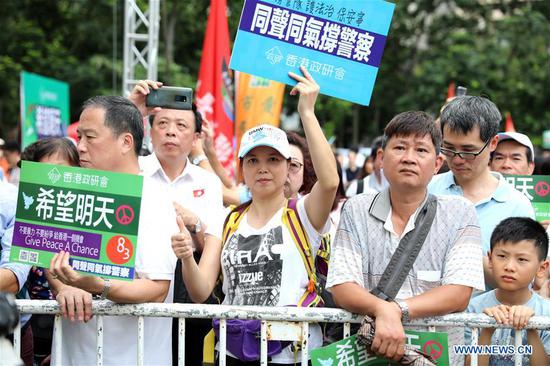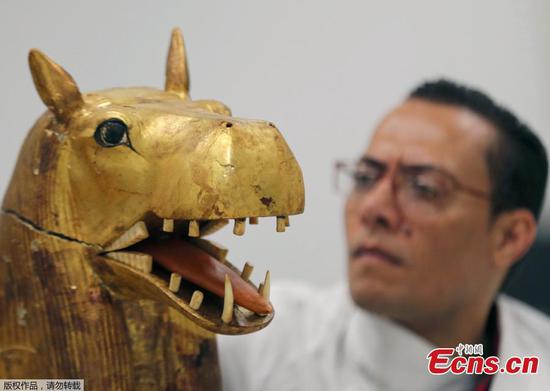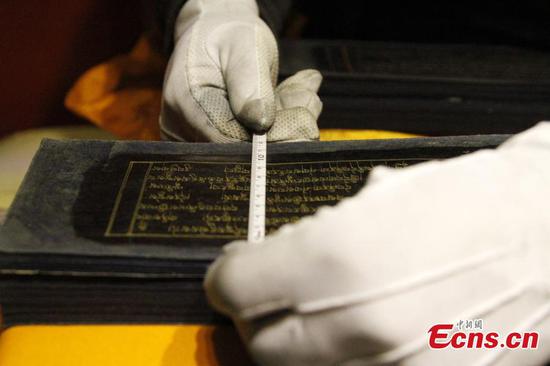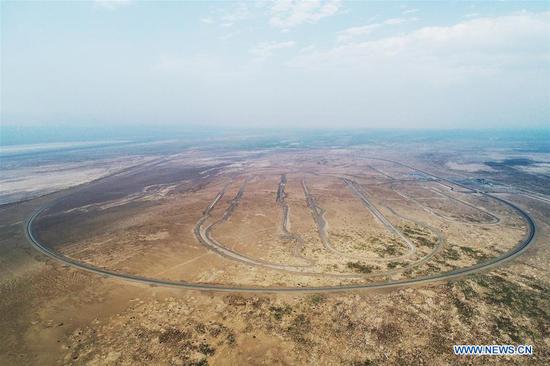Private-sector players likely to participate in project
With internet technologies advancing and cryptocurrencies flourishing amid a broad digital transformation, individual countries are starting to issue legal tender in digital form, and the People's Bank of China (PBOC), the country's central bank, is also accelerating its pace in this area.
As of Sunday, the PBOC had applied for 74 patents involved with digital currencies to the National Intellectual Property Administration, according to a report by the Economic Information Daily on Monday.
The PBOC said it will speed up the development of legal digital currency on Friday.
Wang Xin, director of the PBOC Research Bureau, said in July that the authority is organizing market-oriented institutions to jointly research and develop a central bank digital currency and the program has been approved by the State Council, China's Cabinet.
"China is beefing up efforts in digital currency innovation, a trend driven by emerging technologies that is spreading worldwide," said Huang Zhen, a professor at the Central University of Finance and Economics.
Rather than letting cryptocurrencies challenge the position of sovereign currencies, it is wiser for countries to roll out their own digital currencies, Huang told the Global Times on Monday.
Chinese authorities ordered a ban on initial coin offerings in 2017 and stopped direct bitcoin-yuan trading as the rapidly expanding market spawned concerns over financial risks.
The PBOC, one of the earliest central banks in the world to start the process of digital currency innovation, launched its program in 2014 during the tenure of former governor Zhou Xiaochuan. In 2017, the PBOC established a research institution for the digital currency.
"China is among the leading countries in terms of its research into a government-backed currency," said Huang.
Favorable conditions
The basic conditions favorable for China's implementation of a digital currency include comprehensive and fast networks, broad digitalization in the financial sector, and advanced financial technologies - particularly blockchain, a digital, public ledger that records online transactions, according to Huang.
In recent years, Chinese internet companies have made huge achievements in the mobile payment and e-commerce sectors, helping create a digital economy of more than 30 trillion yuan ($4.36 trillion), according to media reports.
In June, US social media giant Facebook released an official white paper for its cryptocurrency project Libra, a blockchain-powered stablecoin expected to arrive in 2020.
The move stepped up the global race for digital currencies, with China's central bank paying close attention.
The central bank is closely working with market participants on creating a central bank digital currency, PBOC official Wang said.
"China's private market players have accumulated some experience in the digital currency sector. Their participation in the government's work will effectively help promote the project," Cao Yin, an expert in the blockchain sector, told the Global Times on Monday.
It is likely that the sovereign digital currency will be issued within two or three years at the soonest, although the authority tends to take a prudent attitude, Cao said.
Once it is broadly implemented, the new currency will have a big impact on Alibaba's Alipay and Tencent's WeChat Pay, the two dominant mobile digital payment tools in China, as the PBOC's digital currency is featured by decentralization, unlike the former two.
Challenges ahead
There are still some bumps on the road to promoting the digital currency.
"For this new kind of currency, its nature actually poses challenges to existing policies in such aspects as foreign exchange control, so it takes time to balance benefits with potential risks," said Cao.
A flexible and open mechanism is needed by the PBOC to attract more talent, he added.
Digital currencies can help strengthen regulation as transaction data can be tracked and analyzed, including illegal money laundering, according to Huang. But laws and rules should be formulated in a timely fashion to protect individual information. "Safety is the biggest issue," he added.
"Use of the digital currency to better serve the real economy also requires policy guidance," said Huang.


















































